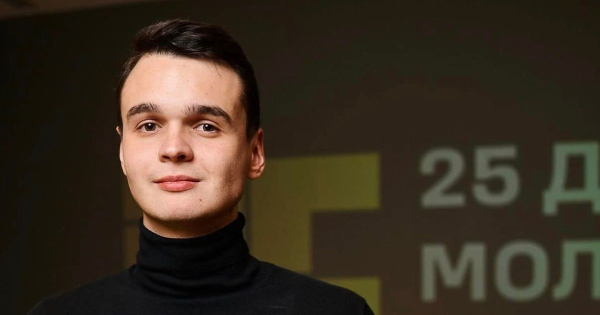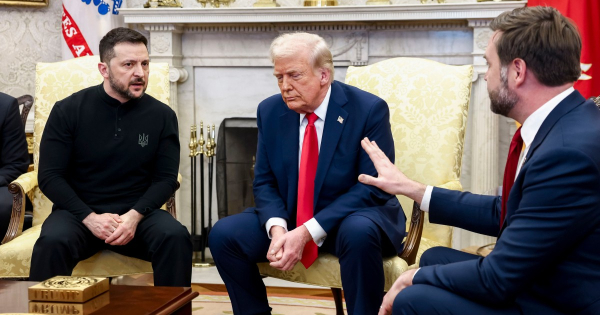
Dear readers,
Welcome to EU Politics Decoded where Benjamin Fox and Eleonora Vasques bring you a round-up of the latest political news in Europe and beyond every Thursday.
This week we focus on the stalled push for EU treaty reform as EU governments push back on momentum from the European Commission and MEPs. Click here to subscribe.
Editor’s take – Playing the treaty change waiting game
Like a well-used family car, every few years the EU treaties are due an MOT. It is more than a decade since the Lisbon treaty was finally ratified. The experience of the collapse of the Constitutional Treaty, and the referendum defeats in France, the Netherlands and Ireland, scarred integrationists. Since then, the pandemic, and its economic consequences, and Russia’s illegal war on Ukraine have severely tested the bloc’s decision making processes. From sanctions policy to mutualised borrowing, the motor needs to be finetuned.
However, it looks like we will have to wait a bit longer.
Four months ago, the European Parliament voted to call for a Constitutional Convention, the first big procedural step towards re-opening the treaties. In her State of the Union speech last month, Commission chief Ursula von der Leyen gave her support for a convention. But since then there has been near total silence.
For the moment, the momentum needed to give the final push towards a convention is not there. Nor is it likely to be any time soon. The group of 13 states who are signed a letter opposing treaty reform have not changed their stance. German Chancellor Olaf Scholz has, at least temporarily, beaten an retreat from the federalism that marked his election campaign. French President Emmanuel Macron has gone quiet.
The Czech government – which holds the rotating Council presidency until the end of the year – is in the group of sceptics. So, too, is Sweden, which takes over the presidency in January 2023. Neither are likely to push the issue and, in the meantime, the main priority of EU leaders over the coming months is likely to be how to co-ordinate national and EU plans to subsidise energy costs for businesses and households, and potentially introduce windfall taxes on energy companies.
The result is that we are currently in a holding pattern. Over the summer, the Czech Presidency sent a questionnaire to national capitals on treaty change and has promised to prepare a “Christmas package” containing proposals for bloc reform. The responses to the questionnaire so far point to national governments being reluctant to engage in treaty reform, says Czech EU Minister Mikuláš Bek.
The question is whether the Commission and, in particular, the European Parliament, should push the issue or wait for member states to be ready.
In June, we reported on the possibility for EU lawmakers to sue the Council if they do not give a clear answer to the demand for a constitutional convention. Former MEP Andrew Duff, one of a handful of EU constitutional experts, told EURACTIV that MEPs could do so.
However, in a document seen by EURACTIV Italy ahead of Tuesday’s General Affairs Council, the Council said that in terms of timing it “has certain discretion”.
Duff told EURACTIV that this position paper is influenced by “nationalists” in the Czech government, adding that “the job of the Council legal service is to oppose the federalist ambition of the European Parliament” and a Commission “which is devoid of constitutional thinking”.
That stance suggests that the federalists in the Parliament, who have been the main drivers of EU integration over the past 40 years, will keep up the pressure, though the act of taking the Council to the European Court of Justice is more about political symbolism than a serious legal case.
Chart of the week

Who’s electioneering?
It is quiet on the European election front – though Slovakia will hold regional and municipal polls on 29 October – but in Israel, voters will elect a new Knesset on the 1 November, the 5th elections since 2019.
Political deadlock has been one of the main reasons for the series of elections and it appears unlikely to be broken. According to opinion polls published by Haaretz on Tuesday, the right-wing bloc led by ex- PM Benjamin Netanyahu will top the poll but still fall slightly short of a majority – taking 59 or 60 seats out of the 120.
Capitals-in-brief
Daphne’s legacy. MEPs addressed the question of rule of law and the protection of journalists in Malta, five years after the murder of Daphne Caruana Galizia who was investigating corruption within the Labour government. Four people are on trial for her murder, yet activists believe there could be high- ranking officials involved who have not yet faced justice.
In a Parliament debate, MEPs called on the Maltese government to immediately withdraw no less than 40 vexatious freedom of information appeals lodged against The Shift News, an Malta-based media portal that has reported on the stories that Caruana Galizia never got to finish.
Still no Speaker. The political deadlock in Bulgaria was summed up on Wednesday, after MPs, in their first sitting since the latest round of elections, spent five hours trying and failing to elect a speaker of the parliament.
Berlusconi vs Meloni. Silvio Berlusconi is battling with Giorgia Meloni regarding the division of ministers and powers for the next Italian government.
Forza Italia leader Berlusconi has escalated the tensions by publicly referring to his close ties with Russian President Vladimir Putin, putting the next coalition government in a very difficult position in terms of international legitimacy.
No euro for Scotland. An independent Scotland would immediately seek to rejoin the EU but would retain the British pound, the Scottish government has promised
Inside the institutions
European Council EU head of states are gathering to address the escalation of the war in Ukraine, the measure to prevent the increasing of energy prices and food security. The sabotage of the Nord Stream 2 pipeline, combating inflation and relations with China are also high on the agenda.
Court on payments. The Polish Constitutional court is examining whether the European Commission’s plans to withhold payments from the EU’s cohesion policy because of rule of law concerns are constitutionally sound. Poland is to receive €75 billion from the Cohesion Fund.
MEPs backtrack on EP buildings revamp. MEPs have backtracked on multi-million euro plans to overhaul their main building in Brussels, potentially averting a major public relations drama in the process. But plans to purchase a new building in Strasbourg are still set to go ahead.
Ukrainian people win Sakharov prize. The Ukrainian people have been awarded the 2022 Sakharov prize, the annual award the European Parliament gives to organisations and individuals that defend freedom of thought and human rights.
What we are reading
– Italy’s drift to the far right began long before the rise of Giorgia Meloni, writes David Broder in the Guardian
– Russia may prefer sabotage of critical infrastructure over nuclear weapons, Constanze Stelzenmüller argues in the Financial Times.
The next week in politics
– EU Ministers will gather for an Environment and Energy Council as well an informal meeting among trade ministers.
– MEPs are in Brussels for parliamentary committee sessions at the European Parliament
Thanks for reading. If you’d like to contact us for leaks, tips or comments, drop us a line at [email protected] / [email protected] or contact us on Twitter: @EleonorasVasques & @benfox83
Source: euractiv.com



